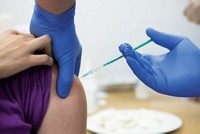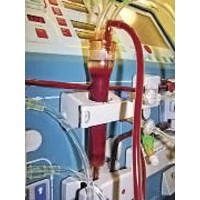Advertisement
Grab your lab coat. Let's get started
Welcome!
Welcome!
Create an account below to get 6 C&EN articles per month, receive newsletters and more - all free.
It seems this is your first time logging in online. Please enter the following information to continue.
As an ACS member you automatically get access to this site. All we need is few more details to create your reading experience.
Not you? Sign in with a different account.
Not you? Sign in with a different account.
ERROR 1
ERROR 1
ERROR 2
ERROR 2
ERROR 2
ERROR 2
ERROR 2
Password and Confirm password must match.
If you have an ACS member number, please enter it here so we can link this account to your membership. (optional)
ERROR 2
ACS values your privacy. By submitting your information, you are gaining access to C&EN and subscribing to our weekly newsletter. We use the information you provide to make your reading experience better, and we will never sell your data to third party members.
Pharmaceuticals
Impurity Linked To Adverse Events
Chinese officials question FDA's findings
by Jyllian Kemsley
April 23, 2008
Laboratory tests have revealed a clear link between a heparin contaminant—oversulfated chondroitin sulfate (OSCS)—and severe allergic reactions in humans that may have resulted in some deaths, FDA officials said at an April 21 press briefing. Chinese officials disputed FDA's conclusions.
Although Chinese officials agree that OSCS is in heparin sourced from their country, they question whether it is the cause of adverse reactions, said Jin Shaohong, deputy director-general of the Chinese National Institute for the Control of Pharmaceutical & Biological Products, at a press conference in Washington, D.C. He said Chinese scientists had found no OSCS in batches of heparin associated with adverse reactions.
But tests in the U.S. do show OSCS in those troublesome lots, said Janet Woodcock, director of FDA's Center for Drug Evaluation & Research. She also noted that reactions to the contaminated drug appear to depend on the dose a person received and how quickly it was administered, and she said treatment standards can vary among countries. "Even in the U.S., the adverse events did not occur in every individual who was exposed to contaminated heparin, so there's some biologic variation," she added.
Woodcock also disclosed that in vitro and animal tests now demonstrate a clear causal link between OSCS and adverse events. Pigs dosed with contaminated heparin or synthetic OSCS developed hypotension and other symptoms of anaphylaxis (N. Engl. J. Med., DOI: 10.1056/NEJMoa0803200).
FDA has also found in some heparin lots unexpectedly high levels of dermatan sulfate, a recognized heparin impurity, Woodcock said. Dermatan sulfate is not known to be harmful but nonetheless should be kept to a low level, she said.
Heparin is used clinically as a blood thinner and is commonly given to patients undergoing heart surgery or dialysis (C&EN, March 24, page 46). A spike in reported adverse reactions to the drug prompted heparin manufacturers to recall products earlier this year.
FDA previously identified a contaminant in lots of heparin associated with adverse reactions as OSCS (Nat. Biotechnol., DOI: 10.1038/nbt1407). Ten countries in addition to the U.S. have now found OSCS in heparin, although only the U.S. and Germany have seen an increase in adverse reactions to the drug. The raw material for all of the contaminated heparin worldwide can be traced to China, Woodcock said.




Join the conversation
Contact the reporter
Submit a Letter to the Editor for publication
Engage with us on Twitter